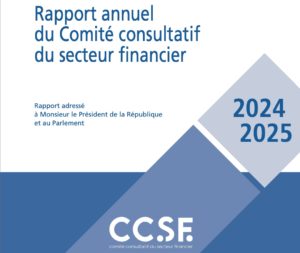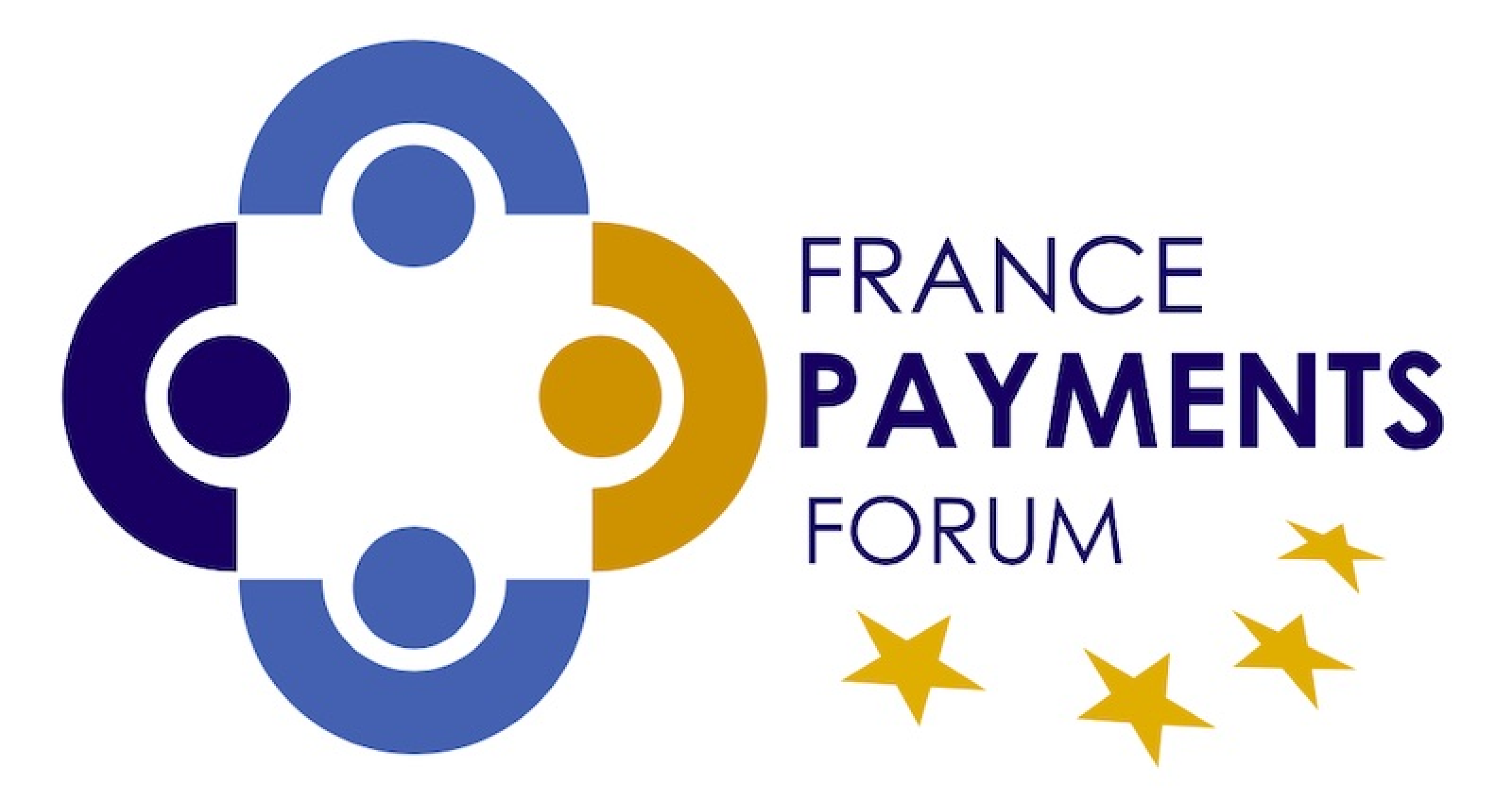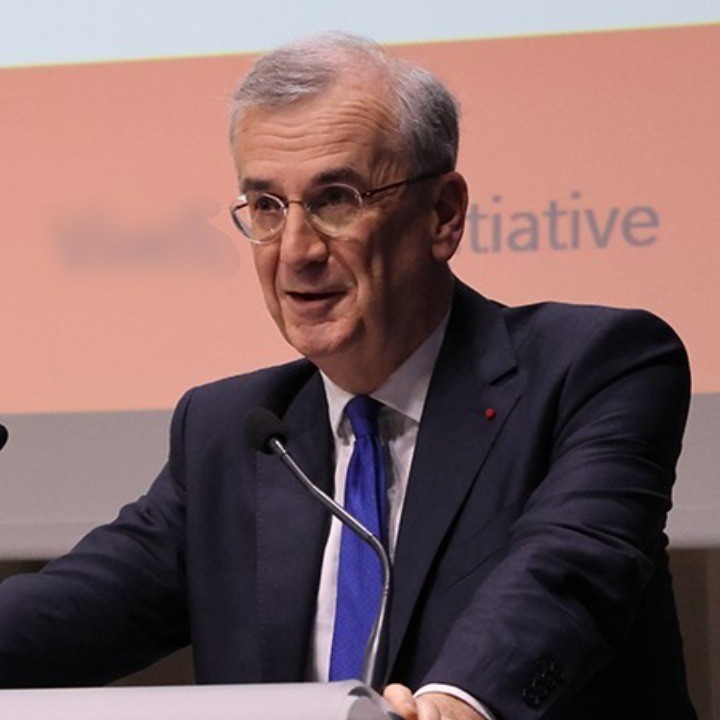
🇫🇷 France
Banque de France : interventions du gouverneur et des sous-gouverneurs
- Dans un discours prononcé à New York le 14 octobre (Préserver le dialogue transatlantique malgré nos divergences récentes), le gouverneur de la Banque de France a notamment évoqué la tokenisation des actifs financiers et appelé de ses voeux une poursuite de la coopération transatlantique.
(…) La tokenisation des actifs financiers constitue une innovation majeure, à la promesse double : améliorer l’efficacité des transferts d’actifs, et réduire l’écart entre les canaux d’épargne et les besoins de financement de l’économie réelle (…) Je salue le fait que les autorités américaines commencent également à se pencher sur le sujet, avec la récente loi GENIUS. Si nos approches peuvent parfois différer, il est essentiel de poursuivre la coopération réglementaire et le soutien aux actifs de règlement interopérables afin de tirer pleinement parti du potentiel de la révolution de la tokenisation.
- Dans une tribune publiée dans Le Monde du 19 octobre (Stablecoins : La rupture économique, ou idéologique, réside dans la privatisation possible de la monnaie) François Villeroy de Galhau, gouverneur de la Banque de France et Agnès Bénassy-Quéré, sous-gouverneure, sont revenus sur la question de la monnaie commerciale tokenisée (stablecoins et dépôts tokenisés)
(…) Le troisième pilier est la monnaie commerciale tokenisée, émise par les banques privées(…) L’Europe (…) doit rattraper son retard sur la monnaie privée. La souveraineté monétaire ne se décrète pas : elle se construit, dans l’innovation et la coordination. Il est temps d’agir ensemble.
- Dans une intervention à l’Université de Picardie le 14 octobre (Quel système de paiement pour l’économie numérique ? ), Denis Beau, premier sous-gouverneur de la Banque de France, a notamment souligné la nécessaire complémentarité entre monnaie tokénisée privée et monnaie tokenisée publique
(…) les discussions et les initiatives qui se développent actuellement et qui sont portées par les intermédiaires financiers européens, comme celles menées par le consortium EPI avec son service Wero, ou encore celles visant à développer une offre de dépôts tokenisés et de stablecoins en euros, sont très importantes et bienvenues.
Comité National des Moyens de Paiement (CNMP)
- Lors de sa réunion du 10 octobre, le GT Europe du CNMP a fait le point sur la négociation du « paquet » DSP/RSP, qui en est désormais au stade des « trilogues », l’objectif étant une adoption sous présidence danoise, donc d’ici fin décembre. Cette présentation confirme celle faite par Éric Ducoulombier le jeudi 22 septembre lors de notre 2e plénière exceptionnelle de septembre dernier (Cf. compte-rendu dans notre newsletter d’octobre 2025).
 Comité Consultatif du Secteur Financier (CCSF)
Comité Consultatif du Secteur Financier (CCSF)
- Rapport annuel 2024-2025 du CCSF : une nouvelle mandature tournée vers l’intérêt des consommateurs (communiqué)
- Rapport 2024-205 du CCSF (94 pages) (Document PDF )
Les sujets traités dans ce rapport 2024-2025 du CCSF n’ont pas de lien direct r avec les paiements, dans la mesure où ces sujets sont désormais regroupés au CNMP. Mais le CCSF aborde de nombreux sujets connexes comme les conditions et tarifications bancaires… Et il est important d’en suivre les travaux.
NB Catherine Julien-Hiébel, Présidente du CCSF, interviendra lors de notre plénière mensuelle du 22 janvier 2026
- Le CCSF a publié le 7 octobre son rapport 2025 de l’Observatoire des tarifs bancaires. Cette publication a suscité une mise au point de la Fédération Bancaire Française (FBF), qui a été ensuite complétée par des explications de la FBF sur le prix des services bancaires.
Explications sur le prix des services bancaires – Actualités – Fédération bancaire française (FBF) (22 octobre)
Parlement français
La proposition de loi visant à renforcer la lutte contre la fraude bancaire qui avait été déposée le 4 février 2025 par le député Daniel Labaronne et adoptée en première lecture par l’Assemblée nationale le 31 mars 2025, a été définitivement adoptée par le Sénat le 30 octobre et promulguée le 6 novembre 2025. Rappelons que cette proposition de loi crée notamment un fichier national des comptes signalés pour risque de fraude (FNC-RF), géré par la Banque de France et financé par des contributions des PSP.
 Institut d’Émission d’Outre-Mer (IEOM)
Institut d’Émission d’Outre-Mer (IEOM)
L’IEOM a publié le 28 octobre un Rapport sur l’usage et la sécurité des moyens de paiement scripturaux dans les collectivités d’outre-mer du Pacifique en 2024 (36 pages)
Il ressort de ce rapport que dans les COM du Pacifique, en 2024, les paiements scripturaux étaient en baisse (en volume et en valeur), parallèlement à une fraude en hausse.
2- International
BRI
Strengthening financial governance and cooperation amid rapid technological transformation (speech de Tao Zhang, BIS Chief Representative for Asia and the Pacific)
Technology is rewriting what is possible. But governance will determine what is achieved. By articulating clear visions, laying solid foundations, providing public goods and promoting private innovation, central banks can manage transitions in ways that preserve stability and trust.
G30
Rapport du G30 « The past and future of money: new technologies and economic risks» (1er octobre) (Document PDF, 68 pages)
This report makes three main recommendations:
1) Policymakers should accelerate work on CBDCs; in particular, they should explore wholesale CBDCs to ensure that central bank money continues to provide the functionality needed for large-scale payments at the heart of the system.
2) Policymakers should also support efforts to tokenize deposits, which offer the possibility of the benefits of tokenization within the bank regulatory perimeter.
3) Outside of the two-tier system, policymakers should craft a robust regulatory framework for stablecoins that creates space for competition in payments without putting the larger system at risk.
The Past and Future of Money: New Technologies and Economic Risks – YouTube (video d’un webinar organisé par le G30 pour la présentation de son rapport) (56’)
Royaume-Uni
FCA supports tokenisation to boost efficiency and innovation in asset management | FCA (14 octobre)
The UK has the opportunity to be a world-leader here and we want to provide asset managers with the clarity and confidence they need to deliver.
AI, DLT, and quantum computing could be the most transformative technologies of our time, with the potential to reshape the UK economy and boost productivity. In turn, productivity growth can raise real wages, living standards, and overall economic growth. The financial services sector has a critical role to play, both as an adopter of these technologies and as a facilitator enabling firms across other sectors to do so.
Advancing settlement: central bank money for the next era of payments − speech by Victoria Cleland | Bank of England (21 octobre)
Victoria Cleland shares the work undertaken by the Bank to modernise wholesale settlement using central bank money. She reflects on the DLT Innovation Challenge..
États-Unis
Speech by Governor Barr on stablecoins – Federal Reserve Board (16 octobre)
Payments innovation is accelerating. Stablecoins, artificial intelligence (AI), real-time payments, and richer payment metadata offer significant improvements to the cost, speed, and functionality of payments. Better payments functionality can help financial institutions and businesses manage liquidity more efficiently at lower cost (…)
Opening remarks by Governor Waller at the Payments Innovation Conference – Federal Reserve Board (21 octobre)
Du fait des innovations technologiques dans le monde des paiements, et de la convergence entre ces innovations et l’écosystème financier traditionnel, le Gouverneur Waller pense qu’il faut revoir la relation de la FED avec tous les acteurs qui participent à la chaîne des paiements, et que cela peut aller jusqu’à la création d’un nouveau compte des acteurs auprès de la FED, qu’il appelle « a « skinny » master account » :
In my view, the payments landscape, as well as the types of providers, has evolved dramatically in recent years, and, accordingly, a new payments account could better reflect this new reality.
Et il précise :
“The account would provide access to the Federal Reserve payment rails while controlling for various risks to the Federal Reserve and the payment system »
 Réglementation des cryptos/stablecoins
Réglementation des cryptos/stablecoins
FSB
FSB finds significant gaps and inconsistencies in implementation of crypto and stablecoin recommendations – Financial Stability Board (Communiqué FSB du 16 octobre)
- Jurisdictions have made progress in implementing recommendations on crypto-asset markets and activities, but regulation of global stablecoin arrangements is lagging.
- FSB urges jurisdictions to prioritise full and consistent implementation, so as to minimise the risk of regulatory arbitrage and to improve the oversight of an inherently global crypto-asset market.
Thematic Review on FSB Global Regulatory Framework for Crypto-asset Activities: Peer review report (rapport du FSB: 111 pages)
BRI
Stablecoin-related yields: some regulatory approaches (23 octobre) (14 pages)
États-Unis
The GENIUS Act’s impact on foreign stablecoin issuers (Finextra, 17 octobre)
As the US moves toward a more unified approach, global players should be preparing for a new compliance reality and actively monitoring the changes the US
Stablecoins: Issues for regulators as they implement GENIUS Act | Brookings (21 octobre)
Royaume-Uni
Bank of England’s Breeden urges closer UK-US stablecoin collaboration | Reuters (7 novembre)
Russie
Russia is reportedly developing a crypto legal system | The Paypers (27 octobre)
Russia has announced its strategy to develop a legal system for crypto in a move to integrate crypto in its international commerce and to avoid Western sanctions.
Monnaies numériques de banque centrale (MNBC)
Royaume-Uni
La Banque d’Angleterre a publié le 23 octobre trois documents sur la digital pound
Digital pound update | Bank of England (7 pages)
The Bank of England and HM Treasury are continuing to explore the case for a digital pound. No decision has been made on whether to introduce a digital pound. The current ‘design phase’ of the digital pound workplan runs through 2026 (…) If the decision was taken to build a digital pound, it would only be introduced once Parliament had passed the relevant primary legislation.
Design note – Offline payments | Bank of England (12 pages)
Offline payments are a complex area, and we expect approaches to them to continue to evolve during the digital pound design phase. We will continue to engage with a wide range of stakeholders to test our assumptions and better understand the opportunities and risks.
Design note – Alias service | Bank of England (15 pages)
An alias can be broadly defined as an alternative identifier used in place of a primary one (…) Considering the benefits aliases are providing in retail payments globally, account aliases could be beneficial to digital pound end-users through three key channels: convenience; privacy and security; interoperability.
Chine
China’s digital yuan CBDC processes $2 trillion. mBridge scale revealed – Ledger Insights (27 octobre)
The PBOC reported that digital yuan payment volumes nearly doubled over the past 14 months, reaching RMB 14.2 trillion ($2 trillion) through September 2025, up from RMB 7.3 trillion in July 2024. The CBDC figures represent a significant acceleration in adoption of the central bank digital currency.
 Paiements transfrontières
Paiements transfrontières
FSB calls for enhanced policy implementation to achieve tangible improvements in cross-border payments – Financial Stability Board (communiqué FSB du 9 octobre)
- The FSB and partner organisations have completed most of the international policy work under the G20 Roadmap for enhancing cross-border payments.
- Policy initiatives have not yet translated into the desired real-world gains for end-users, though there have been improvements in some areas.
- In order to fulfil the G20 objectives, the FSB and partner organisations will work with key stakeholders to support implementation of actions under the Roadmap at the jurisdictional level.
G20 Roadmap for Enhancing Cross-border Payments: Consolidated progress report for 2025 (rapport du FSB: 69 pages)
G20 expected to miss 2027 target for payment reforms | The Paypers




